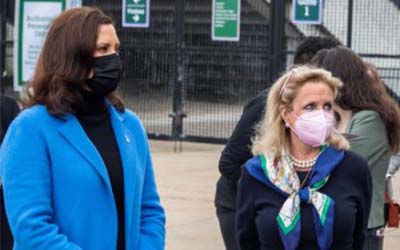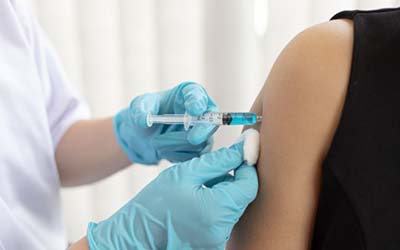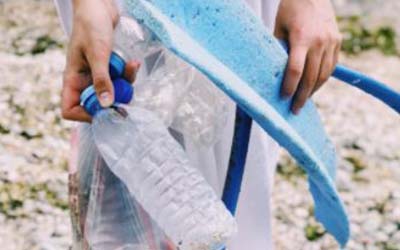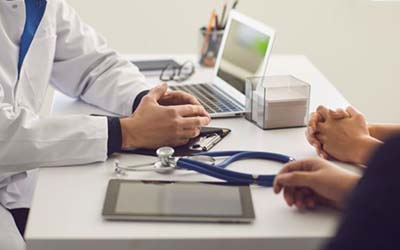FOR IMMEDIATE RELEASE
April 8, 2021
Contact: Chelsea Wuth, 517-241-2112
LANSING, MICH. With all Michiganders eligible to receive one of the three safe and effective COVID-19 vaccines, the Michigan Department of Health and Human Services (MDHHS) is continuing its efforts to equitability distribute and increase vaccine accessibility. This now includes vaccine allocation to universities and colleges and expanded mobile sites in communities across the state.
“Vaccinations are the best tool we have to fight COVID-19 and end this pandemic,” said Dr. Joneigh Khaldun, MDHHS chief medical executive and chief deputy for health. “We are committed to making vaccine accessibility simple and equitable, which is why we are mobilizing efforts to bring vaccines to college students, and to those who are most vulnerable or do not have access to transportation. These efforts will help us reach our goal of vaccinating at least 70% of Michiganders age 16 and up as quickly as possible.”
The effort to increase university allocations is intended to vaccinate students before they return home for the summer. Nearly 16,000 Johnson & Johnson vaccine doses are being shipped to local health departments associated with participating colleges and universities across the state.
“Vaccinating this group of the population right now makes a lot of sense as thousands of college and university students near the end of their academic year and are preparing to travel back home, start new jobs, take summer vacations, and interact with their family and friends,” said Northern Michigan University president Fritz Erickson. “We appreciate this initiative by the state to keep college students safe. This effort will protect not only the age group that is now seeing a higher rate of infection than before, but it protects communities and families across the state from spread of the virus due to the mass movement of college students that takes place over the next few weeks.”
Twenty-six colleges and universities are participating in the vaccination effort including:
- Andrews University
- Albion College
- Central Michigan University
- College for Creative Studies
- University of Michigan-Detroit
- Ferris State University
- University of Michigan-Flint
- Michigan State University
- Western Michigan University
- Kalamazoo College
- Davenport University
- Calvin University
- Cornerstone University
- Adrian College
- Northern Michigan University
- Alma College
- Oakland University
- Lawrence Technological University
- Rochester University
- Grand Valley State University
- Saginaw Valley State University
- Eastern Michigan University
- Concordia University Ann Arbor
- University of Michigan
- Wayne State University
- Finlandia University
“Protecting the health and safety of our campus community has always been critical to our student experience, but never more so than during this pandemic,” Central Michigan University president Bob Davis said. “By data-driven planning and development of measures to keep our community safe, we’ve been able to stay open and operational since returning to campus last June. And now, because of Governor Whitmer’s unwavering commitment to make vaccinations available to all Michiganders, we are positioned and prepared to offer mass vaccinations to all of our students. We are appreciative to the Governor and her staff for their efforts to keep our community and all of Michigan safe.”
Starting April 14, expansion of mobile clinics in Detroit and Hamtramck will offer vaccine outreach in areas of high social vulnerability index (SVI). Workers will go into communities and help community members register for Ford Field vaccinations or participate in that day’s mobile clinic. These mobile clinics will have the capacity to vaccinate up to 500 residents per day.
“Given the rise in cases and hospitalizations, now more than ever, it is important to bring the vaccine where people are, right in their neighborhood,” said Denise Fair, chief public health officer at the Detroit Health Department. “We will be offering even more opportunities to provide vaccines to our community. We are continuing to do everything we can to make it as accessible as possible for Detroiters to get vaccinated. If it means going to neighborhoods to make it even easier, that is what we will do.”
The goal of these efforts is to work with trusted community partners, like churches, to distribute factual information and administer vaccines. They will also help residents sign up for appointments and in some cases provide transportation to available vaccine clinics, including the location at Ford Field.
Mobile Clinic locations take place at the following locations:
April 14
- Detroit Job Corps Center, 11801 Woodrow Wilson St., Detroit
- Shrine of Black Madonna, 7625 Linwood St., Detroit
April 15
- Historic King Solomon Church, 6100 14th, Detroit
- Salvation Army Harbor Light, 3737 Lawton St., Detroit
April 16
- Ernst T. Ford Field Rec. Center, 10 Pitkin St., Detroit
- Wings of Love, 17133 John R St., Detroit
April 19
- Historic Little Rock Baptist Church, 9000 Woodward, Detroit
- Greater New Mt. Moriah, 586 Owen St., Detroit
April 20
- YPAC/YALA, 2112 Holbrook St., Hamtramck
- Kabob House, 11405 Contant St., Hamtramck
April 21
- Russell Street Baptist Church, 8700 Chrysler Dr., Detroit
- Hyacinth Church, 3151 Farnsworth St., Detroit (Tentative)
April 22
- New Greater Zion Hill MBC, 18891 St. Louis St., Detroit
- Perfecting Church, 7616 Nevada, Detroit
While the pandemic continues, there are still layers of protection that can continue to help mitigate the spread. Every Michigander has a responsibility to do their part by wearing a mask (even after getting the vaccine), washing hands, maintaining social distancing and getting the vaccine when it is available to you.
To find a vaccination site in Michigan, visit the Michigan.gov/Coronavirus website.
Michigan residents seeking more information about the COVID-19 vaccine can visit Michigan.gov/COVIDvaccine. Information around this outbreak is changing rapidly. The latest information is available at Michigan.gov/Coronavirus and CDC.gov/Coronavirus.









